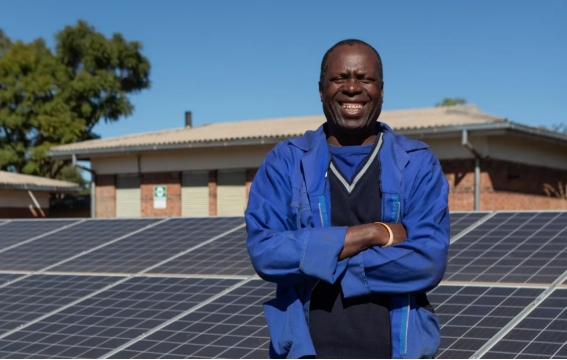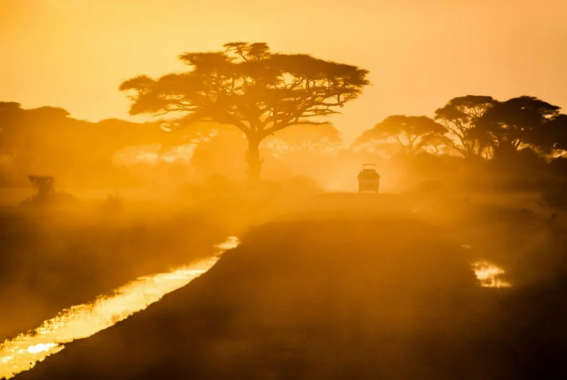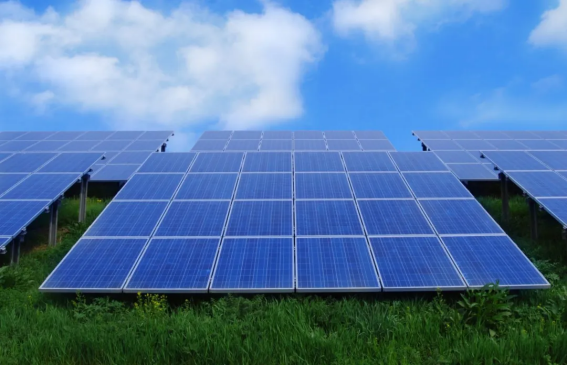出海非洲·最后一块未耕地,可再生能源的未来在非洲

非洲拥有丰富的关键矿产储备,如电动汽车电池所必需的钴,以及无与伦比的太阳能资源,是名副其实的清洁能源宝库。然而,与这种潜力形成鲜明对比的是一个令人沮丧的现实:非洲获得的清洁能源投资仅占全球投资的 2%——这一悖论需要打破。
With its abundant reserves of critical minerals, like cobalt essential for electric vehicle batteries, and an unmatched wealth of solar resources, Africa is a veritable treasure trove of clean energy potential. Yet, starkly contrasting this potential is a disheartening reality: Africa receives a paltry 2% of global investments in clean energy – a paradox that needs to be broken.
.
-中非商机

非洲目前的能源结构虽然潜力巨大,但与其前景形成鲜明对比。化石燃料仍占主导地位,占非洲大陆总能源供应的 77%,令人震惊。相反,风能、太阳能和地热能等可再生能源仅占很小的份额。这种能源不平衡不仅加剧了环境问题,还加剧了能源获取差距,导致数百万人无法获得可靠的电力。
Africa's current energy mix, though laden with potential, presents a stark contrast to its promise. Fossil fuels still dominate, accounting for a staggering 77% of the continent's total energy supply. Conversely, renewables like wind, solar, and geothermal make up only a marginal share. This energy imbalance not only exacerbates environmental concerns but also perpetuates energy access disparities, leaving millions without reliable access to electricity.
非洲人口不断增长、城市化和工业化推动能源需求呈指数级增长,进一步凸显了向清洁、可持续能源转型的必要性。肯尼亚、纳米比亚和南非等国家已经制定了雄心勃勃的可再生能源目标,利用其丰富的太阳能和风能资源。
Africa's burgeoning population, urbanisation, and industrialisation are driving an exponential rise in energy demand, further underscoring the need for a transition towards clean, sustainable energy sources. Countries like Kenya, Namibia, and South Africa are already setting ambitious renewable energy targets, harnessing their abundant solar and wind resources.
此外,非洲拥有丰富的关键矿产资源,包括钴、锰和锂,这使得非洲在全球能源转型中发挥着关键作用。这些矿产对于能源储存和电动汽车至关重要,与世界向更清洁的交通解决方案转变相一致。有效的自然资本测绘和矿产勘探当然对于开采这些储备至关重要。在最近一份题为“自然资本测绘和矿产勘探在能源转型中的战略重要性”的白皮书中,Xcalibur Multiphysics 提供了宝贵的见解,说明有效的自然资本测绘和矿产勘探如何有助于实现可持续和有弹性的能源未来。该报告深入探讨了关键主题,包括矿产勘探在低碳经济中的作用以及测绘自然资本在明智决策中的重要性。
Additionally, Africa's vast reserves of critical minerals, including cobalt, manganese, and lithium, position the continent to play a pivotal role in the global energy transition. These minerals are vital for energy storage and electric vehicles, aligning with the world's shift towards cleaner transportation solutions. Effective natural capital mapping and mineral exploration are of course vital to unlock these reserves. In a recent white paper titled "The Strategic Importance of Natural Capital Mapping and Mineral Exploration in the Energy Transition," Xcalibur Multiphysics provides valuable insights into how effective natural capital mapping and mineral exploration can contribute to a sustainable and resilient energy future. The report delves into crucial topics, including the role of mineral exploration in a low-carbon economy and the importance of mapping natural capital in informed decision-making.

非洲的可再生能源潜力不容置疑,但仍有相当一部分尚未开发。其中一个主要障碍是清洁能源项目的资本成本过高,可能比发达经济体高出两到三倍。这一财务障碍阻碍了开发商开展经济上可行的项目,这些项目能够为非洲大陆不断增长的人口提供负担得起的能源解决方案。
Africa's renewable energy potential is undeniable, yet it remains largely untapped. One of the major impediments is the exorbitant cost of capital for clean energy projects, which can be two to three times higher than in advanced economies. This financial barrier hinders developers from pursuing economically viable projects capable of delivering affordable energy solutions to the continent's growing population.
然而,非洲可再生能源项目的融资格局正在发生变化,因为必须找到替代历史上可靠但越来越不可持续的主权担保的方案。由于债务负担不断增加和经济重点不断转变,依赖国家提供此类担保的传统模式面临挑战。然而,这一挑战刺激了创新,催生了能源中介机构。正如 CrossBoundary 在最近的一份报告中所倡导的那样,这些中介机构在确保承购协议和提高可再生能源项目的可融资性方面正变得不可或缺。
The financing landscape for renewable energy projects in Africa is changing, however, driven by the necessity to find alternatives to historically reliable but increasingly unsustainable sovereign guarantees. The traditional model of relying on countries to provide such guarantees has faced challenges due to mounting debt burdens and shifting economic priorities. However, this challenge has spurred innovation, giving rise to energy intermediaries. These intermediaries, as advocated in a recent report by CrossBoundary, are becoming integral in securing offtake agreements and enhancing the bankability of renewable energy projects.To realise the full potential of these nascent business models, CrossBoundary advocates that development finance institutions (DFIs) must adapt their roles and embrace a higher risk appetite by redirecting their focus towards supporting these intermediaries.

非洲在全球能源转型中的作用不仅是必然的,而且前景广阔。凭借丰富的可再生能源资源、关键矿产资源以及公共和私营部门对可持续发展的日益承诺,非洲大陆可以成为应对气候变化的推动力。尽管未来挑战艰巨,但随着创新解决方案和新的气候智能型伙伴关系的出现,非洲的势头显而易见。
Africa's role in the global energy transition is not just a matter of necessity but one of great promise. With vast renewable energy resources, critical minerals, and a growing commitment to sustainability from both the public and private sectors, the continent can be a driving force in combating climate change. While the challenges ahead are formidable, the groundswell of momentum is palpable, bolstered by the emergence of innovative solutions and new climate-smart partnerships.





